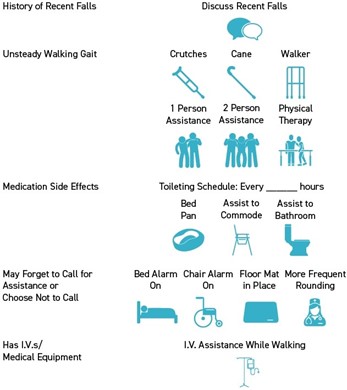While working as nurse in a hospital you notice that a co-worker has unsteady gait and slurred speech. You suspect that she may be an impaired nurse.
Which of the following will be the appropriate action to take?
Ask your co-worker to perform a sobriety test.
Report your co-worker to the supervisor.
Ignore your co-worker’s behavior until others notice the problem.
Confront the co-worker with your suspicions.
The Correct Answer is B
This is because impaired nursing can have serious consequences for patients' safety and well-being, and it is your ethical and professional responsibility to take action to ensure patient safety.
Confronting the co-worker directly ( Option d) may not be the best approach, as it could lead to a confrontational situation and may not resolve the issue. Asking your co-worker to perform a sobriety test ( Option a) may also not be appropriate, as you may not be trained or authorized to administer such a test, and it may not be a reliable indicator of impairment. Ignoring the co-worker's behavior ( Option c) is not an appropriate action, as it could potentially harm patients and violate your ethical and professional responsibilities as a nurse.
Nursing Test Bank
Naxlex Comprehensive Predictor Exams
Related Questions
Correct Answer is D
Explanation
The first step in the nursing process is assessment, which involves gathering information about the patient’s condition. In this situation, the nurse should make observations about the patient’s physical and mental status, including any signs of injury or distress. This information can then be used to determine the appropriate course of action and provide appropriate care. The other
The other options do not represent the first step in the nursing process and may not be appropriate in this situation.

Correct Answer is C
Explanation
Florence Nightingale was a pioneer in the field of nursing and is considered the founder of modern nursing. She recognized the importance of a clean environment in promoting health and preventing disease transmission. Nightingale's work during the Crimean War in the 1850s led to significant improvements in sanitation and hygiene in hospitals. She emphasized the need for clean water, fresh air, and proper disposal of waste to reduce the spread of infection.
Nightingale's approach to nursing included the promotion of health and the prevention of illness through environmental measures, such as maintaining a clean and well-ventilated environment. Therefore, the act of developing a clean environment is a factor in providing effective health care as demonstrated by Florence Nightingale.
Whether you are a student looking to ace your exams or a practicing nurse seeking to enhance your expertise , our nursing education contents will empower you with the confidence and competence to make a difference in the lives of patients and become a respected leader in the healthcare field.
Visit Naxlex, invest in your future and unlock endless possibilities with our unparalleled nursing education contents today
Report Wrong Answer on the Current Question
Do you disagree with the answer? If yes, what is your expected answer? Explain.
Kindly be descriptive with the issue you are facing.
